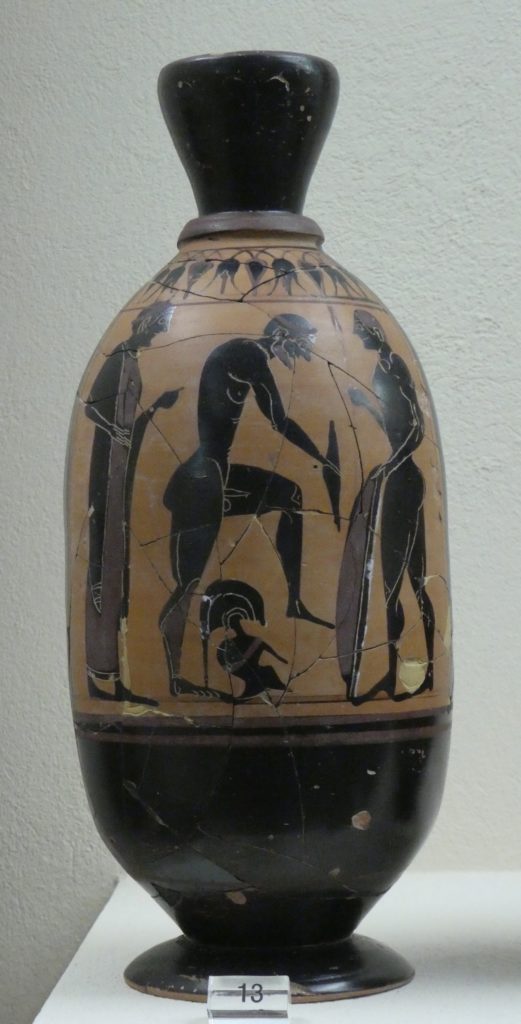In “Us and Them — The Science of Identity”, David Berreby makes the point that it is incorrect to talk about race at all. “We should talk”, he writes, “ about the way conduct and cognition (my italics) are racialized.” (p321).
The word behaving — “to conduct” and “to know”— is a verb. You identify somebody through identifying. And not: identification. I’ll show that identity (gender, race, class, nation, …) is not a fact, but an act, a way of acting. There is no such thing as “identity”, only processes of “identifying”.

Identifying makes sense. And this is why Berreby calls “us and them” a sense. It’s very hard to survive, when you cannot “make sense”.
In making sense — thinking — we have to use categories to distinguish “things” (I would have like to write “thinks”). As the Daodejing says: “Once the whole is divided, the parts need names”. So first dividing, naming second.
And then we’re stuck because we cannot go back to “in-divided”. Naming implies being divided.
You can only be “black” when you’ve called something “white” (and vice versa). You have to mention another category — I propose “human being” -, to get around this. But then, it doesn’t “solve” a problem any more, because there is none. Or, well, another one: mammals versus human beings.
You make up categories in your mind. You invent categories. They’re not absolutes, like black and white, but relatives, like you and me.
Words have no meaning. If I had written this in Greek, Chinese or Arabic, these words would not carry any meaning. Except for a Greek studying Arab with a Chinese parent (interpunction intentionally ambiguous) .
Human beings assign (attribute) attributes to things they sense and act as if these are absolutes. This makes sense in emergency situations. Watch it.
Using words as absolutes makes sense in simple situations. “I see a lion” — or “here are berries”. From those situations, we have learned that “words carry meaning”. It’s called the “conduit metaphor of communication”. (yep, there are metaphor on metaphors).
Words don’t speak, humans speak.When a word refers to a thing, somebody refers to a think (couldn’t resist).
Referring nouns to a process, verbs, creates problems. There exists no such “thing” as communication (only communicating), no such thing as “hope” (only expecting, or “hoping”) … . Words have no meaning, only a human being has — or should I say “is” — meaning.
A trick, we currently massively employ, is using your position of power to determine the meaning of words, meaning your meaning. Using the conduit metaphor people create a “sender → channel → receiver” situation in which the sender (I) determines the meaning of the message encoded in words. The receiver (you) has to follow as instructed.
Please ignore this message.
We fall in the same trap, when we use the conduit metaphor in answering. You cannot say: “you should use another word for race (or black and white)”. Or, “you should not use these words (on me)”. As this reinforces the situation that created the situation. We end up in power games, discussing about who is right over what is true. (Nothing is always true, and not even that).
What we’re learning to apply is sometimes called “toolmaker metaphor”. I like to call it “inventing metaphor”. We invent words, sentences, — metaphor — while conversing. So in one conversation, I can say “black”, in another “human” and in a third “I don’t know” about the same “thing”.
My dear (very) dark-skinned friend Mary startled me, the first time she proclaimed: “I’m not black”. And she couldn’t be more clear.




